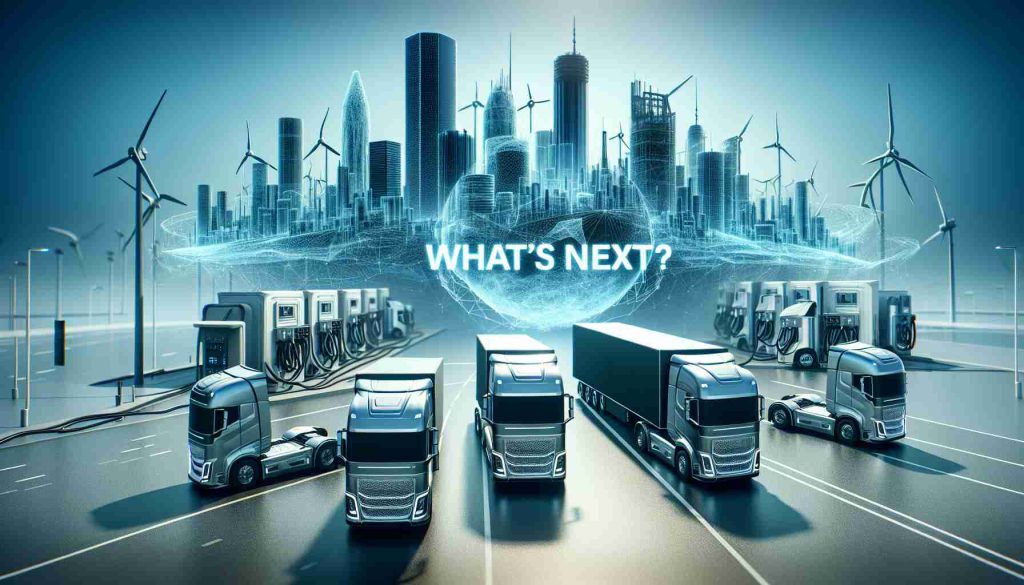Exploring the Impact of Recycling on Energy Independence
Recent discussions highlight a surprising ally in the quest for US energy independence: recycling. Companies like Li-Cycle are championing the recycling of lithium-ion batteries, crucial for electric vehicles and renewable energy storage, as a pivotal component in strengthening both energy and national security.
With the growing reliance on electric propulsion and renewable energy sources, the need for lithium and other critical materials has skyrocketed. Enhanced battery recycling not only diverts waste from landfills but also reduces dependence on foreign sources of these essential materials. This process is essential, considering the geopolitical complexities surrounding raw material supply lines.
Li-Cycle emphasizes that their approach to recycling can help recover significant quantities of lithium, cobalt, and nickel, reclaiming valuable resources from old batteries. This not only supports the US economy but also minimizes environmental impacts, aligning with sustainability goals.
Moreover, the move towards a circular economy stands to create new industries and jobs within the United States. By investing in domestic recycling infrastructures, the country can ensure a more stable supply chain for the materials needed in advanced technologies.
Overall, the pursuit of enhanced recycling technologies is crucial for establishing a robust energy future while promoting national security. As the US marches towards a greener tomorrow, the role of recycling in this transformation cannot be overlooked.
Broader Impacts of Recycling on Society and the Environment
The recycling of materials, particularly lithium-ion batteries, transcends a mere waste management strategy; it signals a fundamental shift in our societal approach to sustainability. As our demand for electric vehicles and renewable energy grows, the implications of recycling ripple throughout the economy, offering profound opportunities for innovation and job creation.
Investments in recycling infrastructures not only bolster local economies but also cultivate a burgeoning green job market. It is estimated that by 2030, the recycling sector could support over 1.1 million jobs in the United States alone. This potential workforce expansion serves as a counterbalance to the changing dynamics of traditional energy sectors facing decline.
Environmentally, the benefits of enhanced recycling practices are significant. By reclaiming essential materials, we reduce the need for mining—an industry notorious for its environmental degradation and contribution to greenhouse gas emissions. Thus, improved recycling initiatives dovetail with global efforts to combat climate change, promoting a cleaner, more sustainable production model.
As we navigate this transition, future trends indicate an intensified focus on technological advancements in recycling, making processes more efficient and effective. The long-term significance of establishing a circular economy cannot be understated; it represents both a necessary adaptation to market demands and a proactive strategy in the face of environmental challenges. Ultimately, the integration of recycling into our societal fabric promises a more resilient, sustainable future for all.
How Recycling is Paving the Way for U.S. Energy Independence
The Role of Recycling in Achieving Energy Independence
As the demand for electric vehicles (EVs) and renewable energy solutions continues to escalate, recycling emerges as a pivotal player in the quest for energy independence in the United States. The recycling of lithium-ion batteries—a key component in EVs and energy storage systems—has gained significant attention as companies such as Li-Cycle lead the charge in this innovative field.
How Recycling Supports Energy Independence
The transition to electric propulsion has resulted in an increased need for critical materials such as lithium, cobalt, and nickel. These resources are essential for creating the batteries that power modern technologies. By enhancing battery recycling efforts, the U.S. can significantly reduce its dependency on imported materials, thereby reinforcing national security against geopolitical uncertainties.
Features and Innovations in Battery Recycling
1. Recovery of Valuable Materials: Li-Cycle and similar companies employ advanced recycling methods that enable the extraction of essential elements like lithium and cobalt from end-of-life batteries. This process not only recovers valuable resources but also minimizes environmental degradation associated with mining.
2. Circular Economy Model: By adopting a circular economy approach, the recycling sector positions itself as an engine for economic growth. This involves repurposing waste materials back into the supply chain, reducing the need for virgin resources.
3. Job Creation and Economic Benefits: Investments in domestic recycling infrastructure are predicted to create thousands of jobs across various sectors, including manufacturing, research and development, and environmental management.
Pros and Cons of Battery Recycling
Pros:
– Reduces environmental impact from mining.
– Strengthens national security through reduced dependency on foreign materials.
– Encourages sustainability and innovation within the economy.
Cons:
– Initial costs of establishing recycling facilities can be high.
– Technology for efficient recycling may still be in developmental stages.
– Regulatory challenges can complicate operations.
Use Cases: Real-World Applications of Battery Recycling
– Electric Vehicle Production: Recycled materials can be reintegrated into new battery production, reducing costs and improving sustainability for automakers.
– Energy Storage Solutions: Recycled lithium from old batteries can be used in energy storage systems that are critical for balancing supply and demand in renewable energy sectors.
Market Trends and Predictions
The global battery recycling market is anticipated to grow significantly in the coming years, driven by increased electric vehicle adoption and stringent environmental regulations. Companies will likely invest more in technology that enhances efficiency and affordability in the recycling processes.
Sustainability and Security Aspects
As the U.S. works towards a greener economy, the integration of sustainable practices in recycling will be essential. Utilizing recycled materials not only curtails waste but also presents a more secure means of sourcing components critical for energy technologies.
Conclusion: The Future of Recycling in Energy Independence
In conclusion, recycling—especially in the realm of lithium-ion batteries—not only plays a crucial role in bolstering U.S. energy independence but also contributes to a sustainable future. As investment and innovation in this sector grow, the potential for enhanced economic stability and environmental protection will become increasingly vital in the energy strategy of the United States.
For more information on sustainable practices and materials: Environmental Insights














